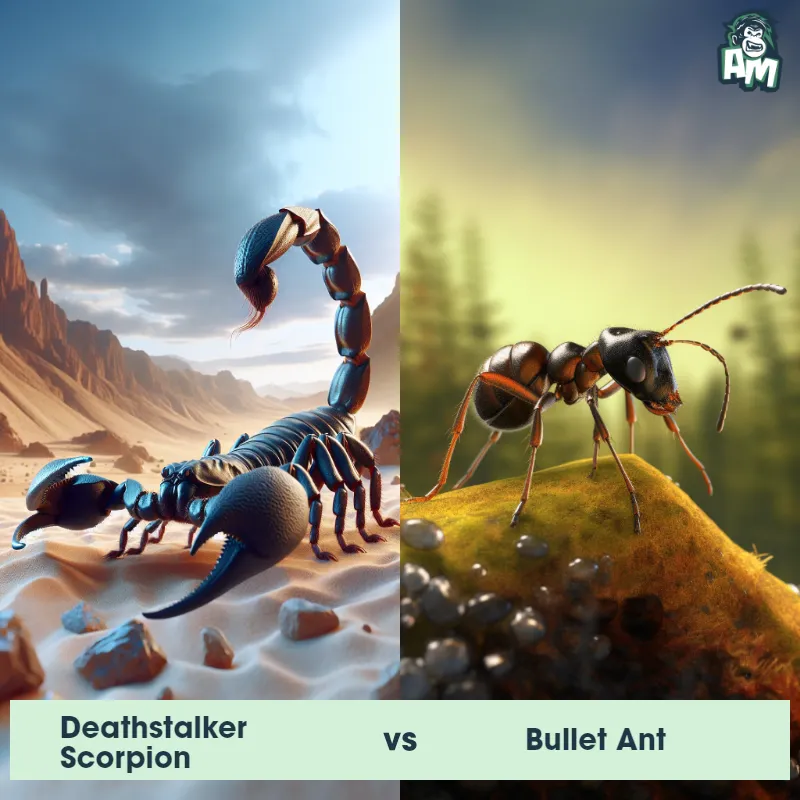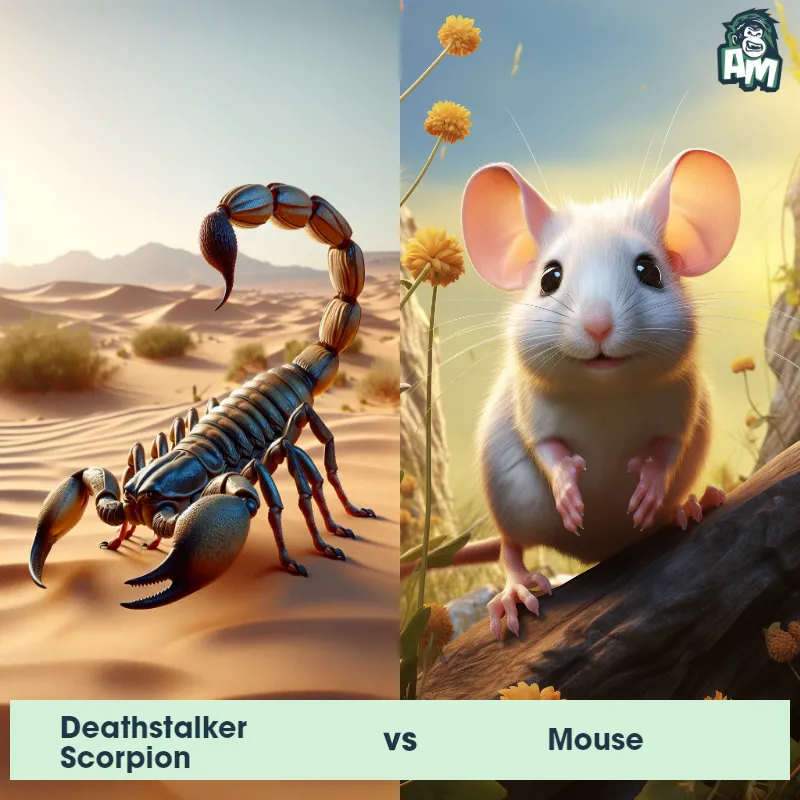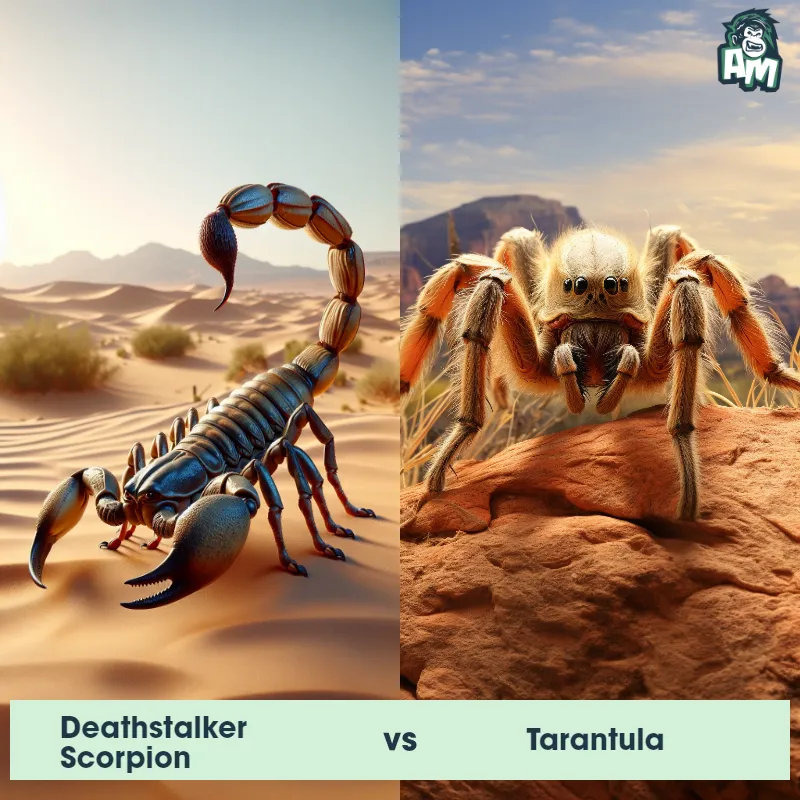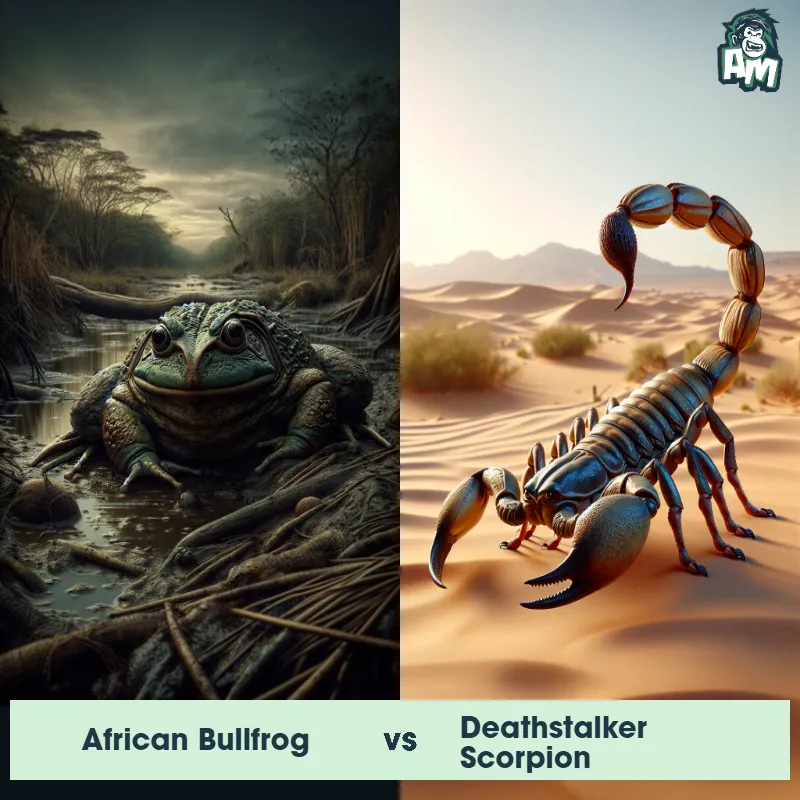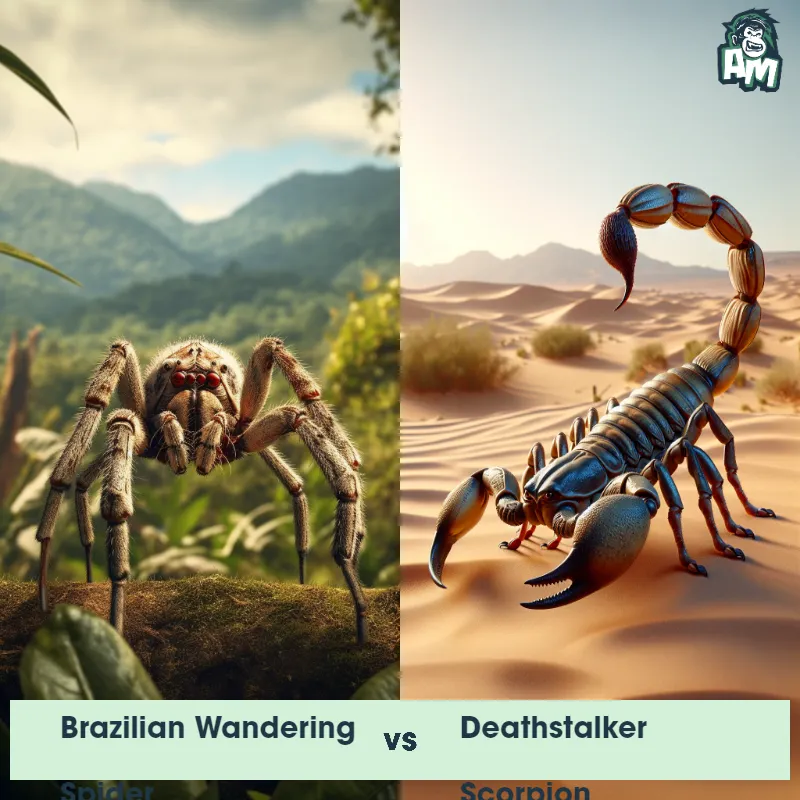The Deathstalker Scorpion
The Deathstalker Scorpion, also known as Leiurus quinquestriatus, is a highly venomous arachnid found in the deserts of North Africa and the Middle East. It is known for its striking yellow coloration, which serves as a warning to potential predators.
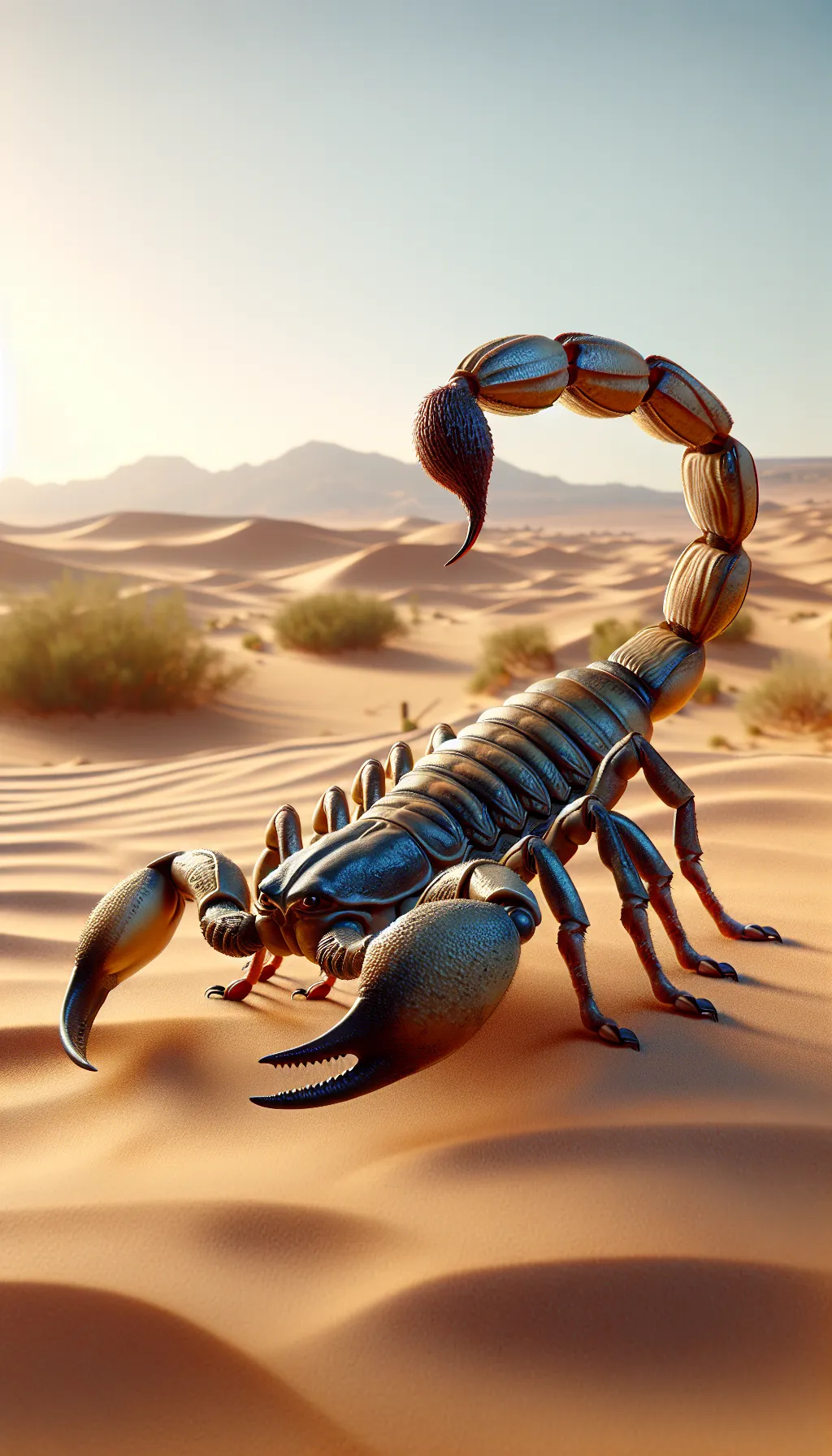
| Deathstalker Scorpion | |
|---|---|
| Size | 3 inches (7.6 cm) |
| Weight | 0.3 ounces (8.5 g) |
| Speed | Speed: 8 mph (12.87 km/hr) |
| Key Strength | Venomous stinger |
| Biggest Weakness | Slow movement |
| Scientific Name | Leiurus quinquestriatus |
| Family | Buthidae |
| Habitat | Desert and arid regions |
| Geography | North Africa and the Middle East |
| Diet | Insects and other small animals |
| Lifespan | 36 months - 72 months |

The Deathstalker Scorpion
The Deathstalker Scorpion, also known as Leiurus quinquestriatus, is a highly venomous arachnid found in the deserts of North Africa and the Middle East. It is known for its striking yellow coloration, which serves as a warning to potential predators.
Fun Fact: The Deathstalker Scorpion has a unique hunting technique. Despite its small size, it uses its keen sense of smell to locate prey, often digging burrows to ambush insects. Once it captures its prey, the scorpion uses its powerful pincers to immobilize it before injecting venom to subdue and digest it.
| Deathstalker Scorpion | |
|---|---|
| Size | 3 inches (7.6 cm) |
| Weight | 0.3 ounces (8.5 g) |
| Speed | Speed: 8 mph (12.87 km/hr) |
| Key Strength | Venomous stinger |
| Biggest Weakness | Slow movement |
| Scientific Name | Leiurus quinquestriatus |
| Family | Buthidae |
| Habitat | Desert and arid regions |
| Geography | North Africa and the Middle East |
| Diet | Insects and other small animals |
| Lifespan | 36 months - 72 months |
Deathstalker Scorpion Matchups
We use AI to simulate matchups between the Deathstalker Scorpion and other animals. Our simulation considers size, strength, and natural predatory behaviors to determine the most likely outcome.
Deathstalker Scorpion: Diet, Predators, Aggression, and Defensive Behaviors
What do Deathstalker Scorpions eat?
Deathstalker Scorpions primarily feed on insects, such as crickets, beetles, and cockroaches. They are also known to eat other small arachnids and even small mammals if they come across them.
Do Deathstalker Scorpions have any predators?
Yes, Deathstalker Scorpions have natural predators such as birds, snakes, and other larger mammals. Some specialized predator species are able to tolerate the scorpion's venom and feed on them without being affected.
Are Deathstalker Scorpions aggressive?
Yes, Deathstalker Scorpions are considered one of the most aggressive scorpion species. They are known to be highly territorial and will attack anything that they perceive as a threat. Their venom is potent and can be fatal to humans if not treated promptly.
Do Deathstalker Scorpions fight?
Deathstalker Scorpions are known to engage in combat with other scorpions, especially during mating season or when competing for territory or food. These fights can be intense and result in injuries or even death for one of the scorpions involved.
How do Deathstalker Scorpions defend themselves?
Deathstalker Scorpions have various ways to defend themselves. They use their venomous sting as their primary defense mechanism, delivering a powerful and potentially lethal dose of venom with their tail. They also have strong pincers that they use to grasp and crush their prey or attackers.
What is the Deathstalker Scorpion's biggest weakness in a fight?
Despite their potent venom and aggressive nature, Deathstalker Scorpions are relatively small in size compared to some other scorpion species. Their exoskeleton is not as thick or durable, making them vulnerable to attacks from larger predators or competitors. Additionally, their venom is less effective against some specialized predators that have developed immunity to it.
Fun Fact: Contrary to what its name may suggest, the Deathstalker Scorpion is not an aggressive creature. It usually prefers to avoid confrontation and will only use its venomous sting as a last resort for self-defense. It will display warning behavior, such as raising its tail in a defensive posture, to signal its potential danger to would-be attackers.
Fun Fact: The venom of the Deathstalker Scorpion contains a mixture of neurotoxins that target nerve cells, making it a valuable tool in medical research. Some components of its venom have been studied for potential therapeutic applications in treating autoimmune disorders, brain tumors, and even certain types of cancers. Scientists are continually exploring the compounds found in its venom to develop more targeted drugs with fewer side effects.



